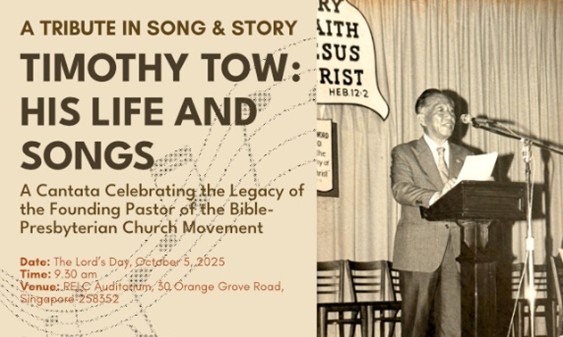GOSSIPY PULPIT AND PEN

A gossipy preacher or writer is one who includes or implies secretive, speculative, or slanderous information—either directly or indirectly—under the guise of spiritual instruction or admonition. Instead of faithfully expounding Scripture, speaking truthfully, or reporting verified facts, the pulpit becomes a platform for telling juicy stories, airing personal grievances, settling private vendettas, or spreading information that is unedifying, inappropriate, or downright false.
Text as Pretext
Gossipy preachers and writers may use the biblical text as a pretext for promoting rumours or falsehoods. Through innuendo, insinuation, or spurious accusation, they stir up suspicion, anger and hatred—often leading to schism or division. These statements and stories, frequently originating from gossiping members, are accepted without justification or verification and treated as gospel truth without question or discernment. The result is premature judgement and condemnation, bypassing the necessary biblical due process (Matt 18:15-17).
At times, such speakers tell stories designed to shame others and promote themselves, or they crack jokes at someone else’s expense. Sometimes the victim is named; other times, not—but described in such a way that listeners can more or less tell who he or she is.
For such people, the pulpit, podcast, blog, or social media becomes a stage for attention-seeking drama—an outlet to puff themselves up by putting others down or to air dirty laundry. Instead of “speaking the truth in love” (Eph 4:15), they aim to make themselves look good by belittling and demeaning others. As Paul says, they preach out of envy and strife, seeking to make life already difficult even more difficult for him (Phil 1:15-16). They are faultfinders and troublemakers, stirring up a storm in a teacup to make others appear far worse than they really are. These gossipy speakers aim either to shame and embarrass or to incite hatred and ill-will against others—all for self-interest and self-gain. Their words reflect exactly what the Apostle James warns against: “And the tongue is a fire, a world of iniquity: so is the tongue among our members, that it defileth the whole body, and setteth on fire the course of nature; and it is set on fire of hell.” (Jas 3:6). They are very destructive people. Their destructiveness is marked by presumptuousness and arrogant conceit, lacking the true spirituality and humility that should adorn a servant or a follower of Christ (Phil 2:3).
By contrast, faithful communication is truthful, loving, instructive, and corrective—aimed at edifying and unifying the body of Christ according to God’s Word, abhorring falsehood and lies (2 Tim 4:2; 1 Cor 14:3). It seeks to heal, not to harm; to help, not to hurt. Although “faithful are the wounds of a friend” (Prov 27:6), and “iron sharpeneth iron” (Prov 27:17), chastening words that exude charity are readily seen and sensed, and we are grateful for them. But the words of the gossipy rub you the wrong way and fail to edify or build you up (Eph 4:29-30).
Use of Social Media
The sin of gossipy communication is not confined to pastors or preachers; church members too may fall into this sin through private “preaching” in their gossipy corners—sometimes at casual tea parties, coffeeshop chats or yum-cha sessions, but increasingly today through social media platforms such as YouTube, Facebook, WhatsApp, Instagram, Twitter, or TikTok, as well as through anonymous or pseudonymous internet forums, emails, and blogs. Some even misuse the church’s offertory box as their hate-mail box.
Such gossipers and slanderers may even use Scripture, but they twist its meaning to suit their abusive agenda—misusing the text to sensationalise events or to condemn others without evidence or clear biblical grounds. Even in the face of indisputable facts, they have no qualms calling black white and white black, calling evil good and good evil (Isa 5:20). Knowing that God-honouring, Bible-loving believers will often turn the other cheek and refrain from pursuing legal recourse (1 Cor 6:1–7), these malicious slanderers exploit such meekness and defame with brazen impunity.
Scripture strongly warns against unwholesome speech: “Let no corrupt communication proceed out of your mouth, but that which is good to the use of edifying…” (Eph 4:29) “A talebearer revealeth secrets: but he that is of a faithful spirit concealeth the matter.” (Prov 11:13). “Tattlers also and busybodies, speaking things which they ought not.” (1 Tim 5:13). “These six things doth the LORD hate: yea, seven are an abomination unto him: A proud look, a lying tongue, and hands that shed innocent blood, An heart that deviseth wicked imaginations, feet that be swift in running to mischief, A false witness that speaketh lies, and he that soweth discord among brethren.” (Prov 6:16–19).
A Sin That Is Murderous
Dr Paul Lee Tan, in his Encyclopaedia of 7,700 Illustrations, recounts this anecdote: “In a small village with only one church, attended by nearly every member of the community, one woman made life difficult through constant prying into her neighbours’ affairs. One day, when the rector of the church tried to show her the harm she was causing, she responded, ‘Oh well, just prying into my neighbours’ affairs isn’t as bad as what Mrs So-and-So does. She gets drunk.’ ‘Madam,’ replied the rector, ‘your sin is classed with murder and with stealing in God’s Word.’”
The rector’s rebuke is biblically accurate. In Romans 1:29-30, “whisperers” and “backbiters”—terms describing gossips and slanderers—are listed alongside coveters, deceivers, murderers, and haters of God (cf. Prov 6:16-19, 1 Cor 6:9-10, Jas 3:5–10).
“O be careful, little mouth, what you say.” Jesus warns, “But I say unto you, That every idle word that men shall speak, they shall give account thereof in the day of judgment.” (Matt 12:36).
Biblical Antidote
What, then, is the antidote to gossipy sermons, articles, texts, and letters? Speakers and writers must return to Christ-centred, pastorally sensitive communication—marked by a Christlike spirit that is winsome, not loathsome. This means: (1) Guarding the tongue with prayerful discipline. (2) Refusing to use any platform as a means of settling personal scores. (3) Examining oneself first before seeking to correct others. (4) Applying Scripture conscientiously and constructively, not to bully but to edify. (5) Speaking with clarity and charity, always pointing to God’s truth and grace in Christ.
A Personal Testimony
The faithful preacher or teacher follows the example of Christ who does not break the bruised reed, nor quench the smoking flax (Isa 42:3).
When I was a student at Bible college, I had a lecturer who makes it a point to criticise the sermons of others but never his own. He often humiliated students and tore their sermons to shreds. Though he occasionally offered helpful critique, his approach was more destructive than constructive. His style was damaging to young, budding preachers and offered little nurture or encouragement. After one particularly devastating encounter, I felt so discouraged that I told myself I should not preach any more. Yet the Lord, who makes no mistakes in His calling, would not allow me to quit. Thankfully, the Principal later took over that class, and it became much better.
Unfortunately, some students admired that lecturer and adopted his ways. I am chagrined to admit that I too—when spiritually insensitive—may have been guilty of the same. Therefore, we must constantly examine ourselves in the light of God’s Word and the Spirit of Christ, that we might be sanctified by His truth and no longer driven by sin, self, or pride. We must never play God.
A Call to Faithful Speech
Notwithstanding, the primacy of preaching remains God’s ordained means of spiritually building His Church. Paul’s charge to Timothy is still as urgent today: “Preach the word; be instant in season, out of season; reprove, rebuke, exhort with all longsuffering and doctrine. For the time will come when they will not endure sound doctrine; but after their own lusts shall they heap to themselves teachers, having itching ears; And they shall turn away their ears from the truth, and shall be turned unto fables” (2 Tim 4:2-4).
All Christians are called to speak truthfully with biblical courage, conviction, and compassion, not to promote self or feed the ego, but to build up others in their walk with the Lord: “But speaking the truth in love, may grow up into him in all things, which is the head, even Christ; from whom the whole body fitly joined together and compacted by that which every joint supplieth, according to the effectual working in the measure of every part, maketh increase of the body unto the edifying of itself in love” (Eph 4:15-16).
Knowing full well that I too may fall into such a grievous sin, I sincerely ask for your prayers, that by God’s grace I may be a good Christian and a faithful minister—for I know I still fall far short of His perfect standard. Needless to say, I am ever grateful for His all-sufficient grace (2 Cor 12:9). JK
REMEMBERING OUR FOUNDING PASTOR

It is important that we remember our foundations—namely, our Lord and Saviour Jesus Christ, the Author and Finisher of our faith, and the totally infallible and inerrant Scriptures, which are verbally and plenarily inspired and preserved. These are the sole and supreme authority for our faith and practice.
But the Bible also exhorts us to remember our founders—our spiritual pastors and teachers, whom God has given to teach us His Word, guide our souls, and defend the faith. Hebrews 13:7 says, “Remember them which have the rule over you, who have spoken unto you the word of God: whose faith follow, considering the end of their conversation.”
One person we want to remember is our founding pastor and teacher, the late Rev Dr Timothy Tow. Many in the younger generation may not know him. It is important for them—and for those of us who did know him—to remember him and not forget the good word and godly example he imparted to us.
This is precisely what this cantata on the life and ministry of Rev Dr Timothy Tow seeks to achieve: to rekindle our faith in our faithful Lord and Saviour, and in His good hand of providence upon us—His children and His servants.
Rev Dr Timothy Tow often quoted Martin Luther, who said, “Music is next to theology.” He frequently used music as a means to teach the Bible and theology to his students. Most of the hymn lyrics presented in this cantata were written by him and are found in Heavenly Melodies, published by True Life Bible-Presbyterian Church.
May the Lord bless our hearts as we hear His story through the life of one of His faithful servants—our founding pastor, the Rev Dr Timothy Tow.
Invite your friends! Welcome one and all! JK


